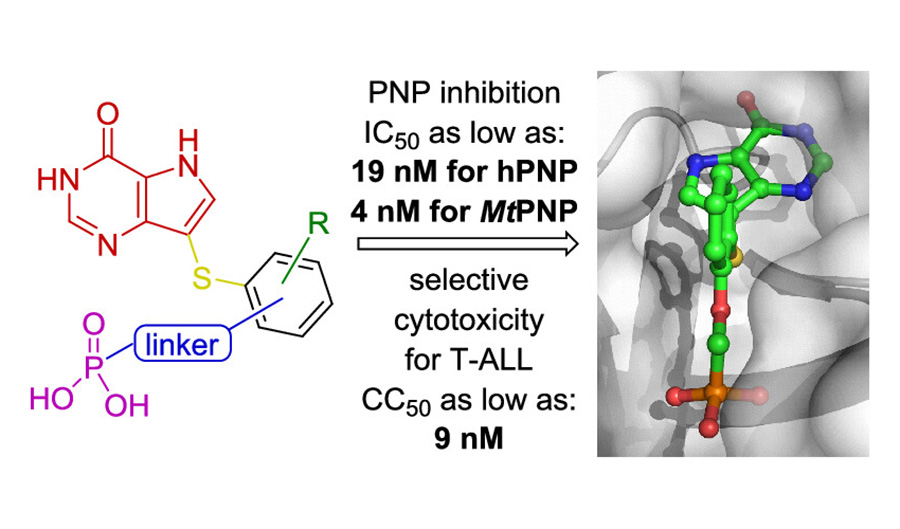
Plasmodium and Trypanosoma parasite species are unable to synthesize life-important purine nucleobases. They utilize the purines and their nucleosides from the host cell to synthesize the main DNA and RNA building blocks. The key enzymes in this pathway are purine phosphoribosyltransferases (PRTs).
Scientists led by Dana Hocková and Zlatko Janeba from IOCB Prague and Luke W. Guddat from The University of Queensland together with colleagues from the Biology Center of the CAS developed a novel methodology to synthesize novel acyclic nucleoside phosphonates and tested their inhibiting activity on Plasmodium and Trypanosoma 6-oxopurine PRTs. Compound named (S,S)-48 showed Ki value of 2 nM making it the most potent PRTs inhibitor yet discovered.
The researchers also determined crystal structures of (S,S)-48 in complex with human and Trypanosoma brucei 6-oxopurine PRTs, which explained the inhibitor’s potency and selectivity.
Read the paper:
- Klejch, T.; Keough, D. T.; King, G.; Doležalová, E.; Česnek, M.; Budešínský, M.; Zíková, A.; Janeba, Z.; Guddat, L. W.; Hocková, D. Stereo-Defined Acyclic Nucleoside Phosphonates are Selective and Potent Inhibitors of Parasite 6-Oxopurine Phosphoribosyltransferases. J. Med. Chem. 2022. https://doi.org/10.1021/acs.jmedchem.1c01881






